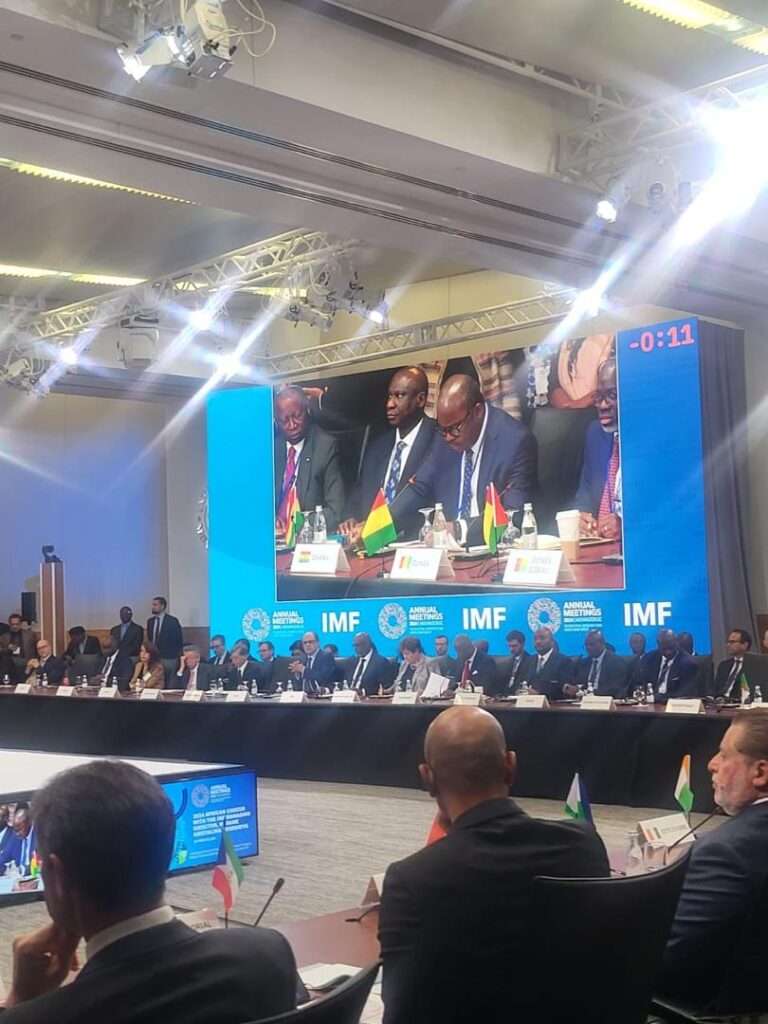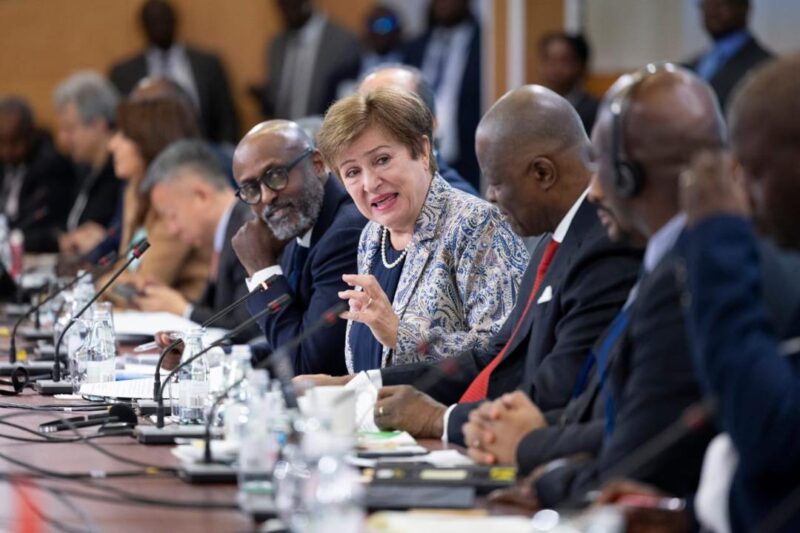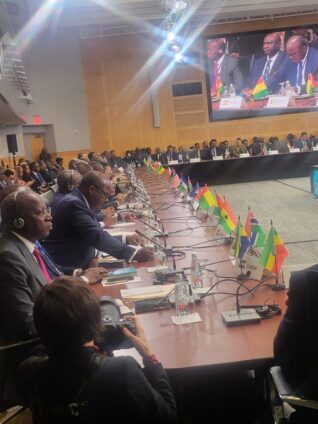
Audio By Carbonatix
The Governor of the Bank of Ghana, Dr. Ernest Addison, is urging the International Monetary Fund to continue to lead in debt restructuring and relief efforts for heavily indebted countries such as Ghana.
In this respect, he wants the Global Sovereign Debt Roundtable (GSDR) to ensure swift, fair, and effective debt resolution under or outside the G20 Common Framework, focusing on providing timely debt relief for the most vulnerable countries.
Speaking at the 2024 Africa Caucus Meeting with the Managing Director of the International Monetary Fund, Kristalina Georgieva, in Washington, DC, Dr, Addison also called for greater private sector involvement in the Common Framework to ensure Comparability of Treatment and faster progress on debt resolution initiatives.
“The Fund, through the GSDR, should also explore innovative financing solutions—such as blended finance, and debt-for-climate swaps via enhanced RSF—to address both the continent’s debt vulnerabilities and climate change risks, he added.

Dr. Addison also called for a collaborative approach to address Africa’s fiscal challenges, which he described as crucial.
“We urge the IMF and World Bank to coordinate their support to develop resilient fiscal policies, considering Africa’s diverse needs. Programmes should account for regional specificities to ensure sustainable and impactful reforms that do not disproportionately affect vulnerable populations. The IMF should leverage its catalytic role and convening power to deepen dialogue with regional MDBs [Multilateral Development Banks] for additional concessional finance and grants, aiding debt restructuring for members at high risk of debt distress”.
He also wants the IMF’s support to remain flexible, adapting to global conditions and country-specific needs, while ensuring sufficient resources.

In this context, the BoG Governor said maintaining the high concessionality of the Poverty Reduction and Growth Trust is critical while ensuring adequate financing through all possible options, such as gold sales.
“In this regard, it is crucial to highlight that the timing for the resumption of charging interest rates on PRGT funds (tiered interest rate structure) is inappropriate as most PRGT-eligible countries are still facing significant challenges. Relatedly, the IMF’s charges and the surcharges policy should avoid adding financial burdens on countries facing fiscal challenges”, he explained.
“With the expiry of the Food Shock Window and rising food insecurity, especially in Africa, timely emergency financing through CCRT resources and program augmentations is essential. Intensified fundraising efforts under the second phase of resource mobilisation are paramount”, he added.
Latest Stories
-
Unlicensed betting firms face sponsorship ban
19 minutes -
Police investigate ‘abhorrent’ racist abuse of players
32 minutes -
FIFA wants injured players to stay off for one minute
41 minutes -
Pacquiao and Mayweather agree professional rematch
51 minutes -
Ghana intensifies U.S. investment drive with strategic California outreach
1 hour -
UK says ‘nothing is off the table’ in response to US tariffs
2 hours -
Netflix boss defends bid for Warner Bros as Paramount deadline looms
2 hours -
One Man, One Woman or Polygamy?
2 hours -
‘The end of Xbox’: fans split as AI exec takes over Microsoft’s top gaming role
2 hours -
Carney heading on trade trip as Canada seeks to reduce reliance on US
2 hours -
Trump threatens countries that ‘play games’ with existing trade deals
3 hours -
A Plus seals three-year partnership with MGL for Gomoa Easter Carnival
4 hours -
Parliament to probe SHS sports violence; sanctions to apply – Ntim Fordjour
4 hours -
Upholding parental choice and respecting the ethos of faith-based schools in Ghana
4 hours -
SHS assault: Produce students in 24 hours or we’ll storm your school – CID boss to SWESBUS Headmaster
4 hours

